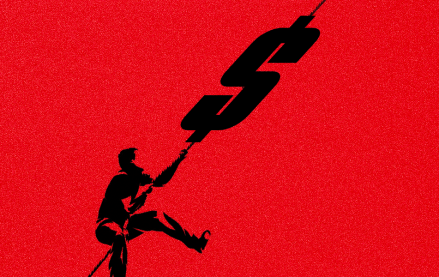Facebook, Google, consolidation: What drove media deals in 2016

Media ownership is being overhauled as companies try to figure out their place in a world where 85 percent of digital dollars are going to two companies: Facebook and Google. Here’s a look at the key media deals that grew out of that tension this past year:
AT&T bids for Time Warner
Telecom companies have been moving into the media business for some time, but they took a giant leap further in 2016, with AT&T making an eye-popping $85 billion offer for Time Warner and Verizon moving to buy Yahoo for $4.8 billion. (Though that latter deal could be renegotiated or scrapped; Yahoo admitted users’ data was compromised in two separate hacks.) Google and Facebook are not only advertising powerhouses but, along with Netflix and Amazon, are also distributing video content and starting to look more like telecom companies in their own right by moving into the internet service business. The heads of AT&T and Time Warner cited those tech giants in making their case to regulators for the merger. The phone companies are facing stagnating growth, with the mobile market saturated and price competition getting steeper. Buying media companies is a way for the telecoms to compete.
Microsoft to buy LinkedIn
The software giant explained its mammoth $26.6 billion offer for the workplace networking company as a way to connect people to its software and services by linking up with LinkedIn’s social graph. Microsoft also has been exploring machine learning, and wants to use that to make LinkedIn more useful to its members and ultimately sell more advertising and memberships. Google and Facebook also have shown interest in workplace tools, so while LinkedIn has its spammy user experience issues, it’s undeniably the No. 1 professional networking site, so the deal could give Microsoft a leg up.
Diversifying revenue
The search for new revenue streams also drove M&A action this past year. Display advertising is on the wane and native advertising is hard to do well and with predictability, which has led publishers to look for other ways to make money off marketers and consumers. The New York Times was at the forefront of this trend, buying Fake Love, an agency that specializes in live experiences and augmented and virtual reality films, and influencer marketing agency HelloSociety. It also bought The Wirecutter, a gadget and electronics recommendation site that collects a portion of the sales it drives, plus sibling site The Sweethome, which does the same for products for the home.
Scale seekers
It’s getting increasingly hard for digital publishers to compete. There are too many outlets fighting for small digital ad scraps, only a few are equipped to meet the market’s demand for digital video, and it’s hard to satisfy venture capital backers’ incessant demand for growth. Consolidation is inevitable. In 2016 it came in the form of Discovery Communications rolling up its video business — comprising Thrillist, NowThis, The Dodo and Seeker — into a new company called Group Nine Media, to be run by Thrillist Media CEO Ben Lerer. Discovery, which put $100 million into the new company, gets access to those companies’ young audiences so sought after by advertisers.
Those same forces came into play in Univision’s acquisition of Nick Denton’s embattled Gawker Media for $135 million. Even before becoming embroiled in its legal battle with Hulk Hogan, Gawker Media faced an uncertain future as a mid-sized publishing company, and Univision has been adding on new companies as part of an effort to expand beyond its roots in Spanish-language media. Gawker’s trailblazing flagship news site was shut down in the wake of the company’s legal troubles, but Univision saw value in the company’s other, more advertiser-friendly verticals, including Jalopnik and Gizmodo.
More in Media

Walmart rolls out a self-serve, supplier-driven insights connectors
The retail giant paired its insights unit Luminate with Walmart Connect to help suppliers optimize for customer consumption, just in time for the holidays, explained the company’s CRO Seth Dallaire.

Research Briefing: BuzzFeed pivots business to AI media and tech as publishers increase use of AI
In this week’s Digiday+ Research Briefing, we examine BuzzFeed’s plans to pivot the business to an AI-driven tech and media company, how marketers’ use of X and ad spending has dropped dramatically, and how agency executives are fed up with Meta’s ad platform bugs and overcharges, as seen in recent data from Digiday+ Research.

Media Briefing: Q1 is done and publishers’ ad revenue is doing ‘fine’
Despite the hope that 2024 would be a turning point for publishers’ advertising businesses, the first quarter of the year proved to be a mixed bag, according to three publishers.





